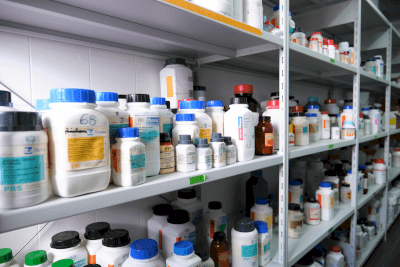What Is a Medicine Cabinet?

A medicine cabinet serves as a secure storage solution for reagents used in research and manufacturing. These cabinets are essential in settings like university and corporate laboratories, where they ensure the safekeeping of chemicals in compliance with various laws and regulations.
Uses of Medicine Cabinets
Medicine cabinets are designed for the organized storage and management of chemicals, safeguarding them against unauthorized access and environmental release. They are particularly crucial for storing toxic substances, with locking mechanisms frequently mandated by law.
Principle of Medicine Cabinets
These cabinets are constructed to be lockable, durable, and corrosion-resistant, accommodating the corrosive nature of many reagents. Materials like stainless steel and concrete are commonly used for their robustness and resistance to corrosion.
Types of Medicine Cabinets
Varieties include glass-fronted cabinets for easy visibility, drawer-type racks for secure storage, and dedicated rooms designed as comprehensive medicine storage solutions, each selected based on specific storage needs and safety considerations.
Other Information on Medicine Cabinets
1. Storage Guidelines
Reagents are typically organized by their chemical nature (acids, alkalis, solvents) and stored separately to prevent cross-contamination. Special attention is given to vapors and potential reactions between stored chemicals.
2. Disaster Preparedness
Securing reagent bottles to prevent tipping during earthquakes and managing flammable materials are critical disaster countermeasures. Divider racks and secure mounting options help minimize the risk of spills and mixing of chemicals.